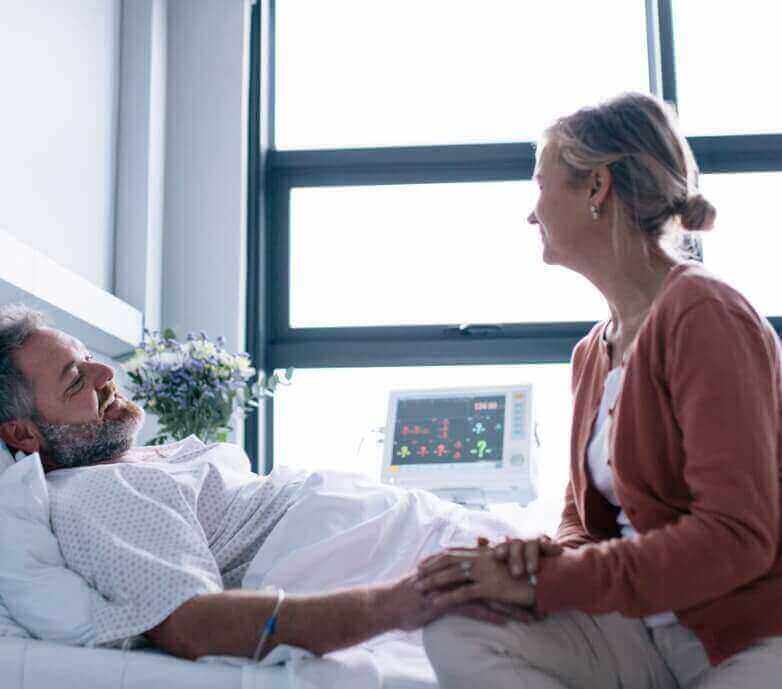Getting medical help right away is especially important after a stroke. Regardless of the type of stroke, they require careful observation, especially in the first 24 hours. Ischemic strokes unfold over 10 hours, which means the majority of brain damage will occur soon after the stroke begins. With every second that treatment is delayed, the brain suffers more damage to neural pathways, which deteriorates cognition, motor abilities, and essential skills.
Monitoring
In the hospital, you will receive medical attention from a specialized doctor or neurologist. From the moment you are admitted to when you are discharged, your vitals will be monitored regularly (this includes heart rate, blood pressure, and temperature). You will be hooked up to a cardiac monitor to allow the doctors and nurses to observe your heart function.
Neurologic examination
The doctor will perform a neurologic examination, which includes testing your strength, sensations, reflexes, mental status, and memory. They may ask you to stand or walk to test your balance. Fluid and food intake will be monitored closely. You may have a catheter placed into your bladder to drain your urine, as well as a catheter placed through the skull to monitor intracranial pressure.
Testing
The doctor may perform specific imaging tests to determine the extent of the stroke. This may include a CT scan or MRI to visualize the brain. They may also request a cerebral angiogram, where a thin, flexible tube is placed into a blood vessel (through the neck or groin) and a special dye is injected to visualize the vessels, checking for leaking or blocked vessels.
You may have your blood drawn to check for healthy blood cells, anemia, fats in the blood, or the blood’s ability to clot. In some cases, the doctor may request an electrocardiogram, which measures and records the electrical activity of the heart.
Treatment
The doctor may recommend certain treatments to prevent the damage from getting worse. This includes draining the fluid that is causing pressure in the skull or placing an oxygen tube through the nose to help you breathe. You may also be prescribed medications to help with blood clotting, pain, swelling, blood sugar, blood pressure, and seizures (if applicable).
Stroke rehabilitation program
While in the hospital, you may start a stroke rehabilitation program to regain some functions that you may have lost. These programs typically include physical therapy to regain muscle strength, occupational therapy to relearn daily tasks, and speech therapy if you have problems with swallowing, speaking, or understanding words.

After being discharged from the hospital, you will need to follow up with your doctor and continue any rehabilitation that you require. To make sure your loved ones know exactly what to look for in your care at home after you return from the hospital, the doctors will educate them about your condition and give them important information to take with them.

If you or a loved one have suffered an ischemic stroke, learn more about CBC Health’s stroke treatment. Using stem cells derived from cord blood, it has shown amazing results in treating brain damage and significantly improving recovery.



